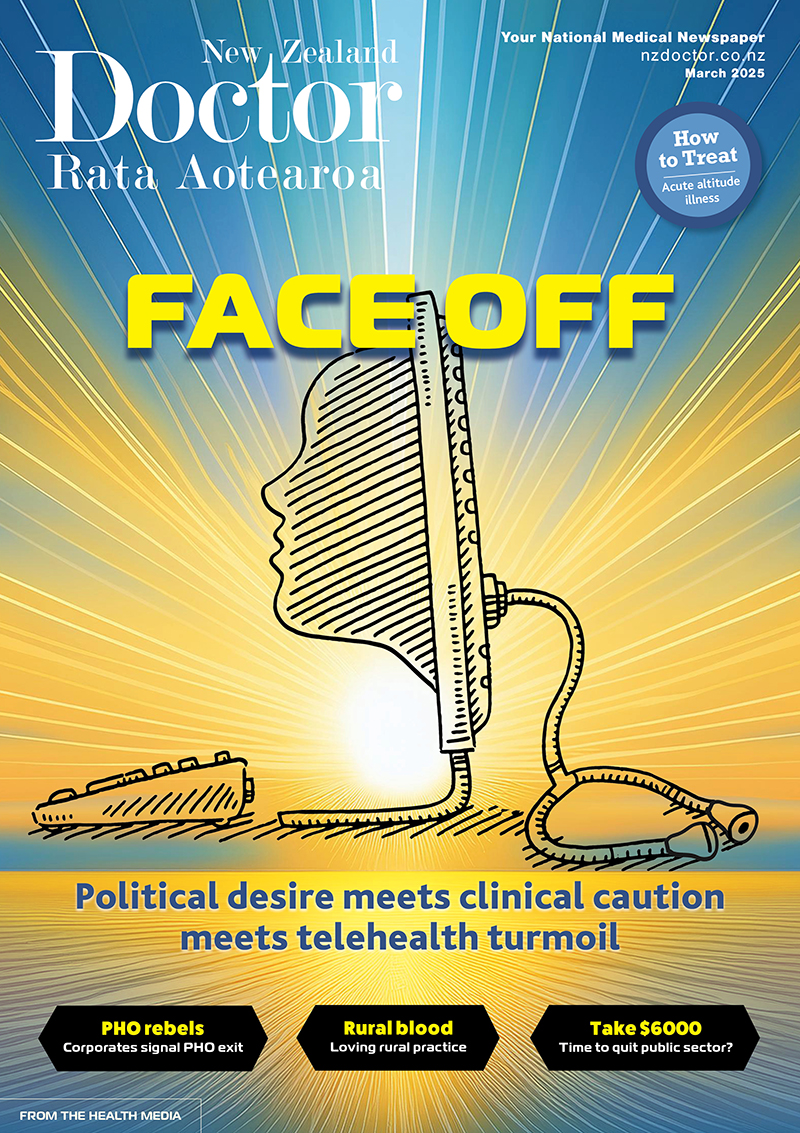Many people travel to high-altitude destinations, meaning clinicians are often faced with questions about how to prevent and treat altitude illness. Update your knowledge with this New Zealand Society of Travel Medicine summary of updated evidence-based guidelines with comments by senior lecturer Jenny Visser – it outlines the best prophylactic regimens, diagnostic approaches and treatment protocols for acute altitude illness
Programme tackling bullying at medical school wins collaboration award
Programme tackling bullying at medical school wins collaboration award
![Fiona Moir and the Hotspots leadership team receiving their award [Image: supplied]](/sites/default/files/styles/cropped_image_16_7_/public/2022-06/Hostpots%20team%20receiving%20award.jpg?itok=ZP0fqEef)
“Hotspots was one of our actions to promote positive change, acknowledging that there were some unprofessional and inappropriate interactions between our students and those supervising them in the workplace setting”
Leaders of an anti-bullying initiative at the University of Auckland have won a collaboration award for their work to reduce discrimination and bullying on medical placements.
Using a visual “heat” system to identify patterns of behaviour, university senior lecturer and Hotspots founder Fiona Moir and her team were recognised with a collaboration trophy at the New Zealand Workplace & Safety Awards 2022 for their anonymous bullying-reporting system.
Safeguard New Zealand held the awards gala on 21 June. The collaboration award was sponsored by workplace health and safety consultancy IMPAC and presented to the group by IMPAC head of training Melanie Wood.
Since its launch in late 2019, the survey has given more than 850 Auckland medical students in their fourth, fifth and sixth years a platform to report bullying, harassment and discrimination while on clinical placements, as well as recognising inclusion and respect.
Dr Moir, who lectures at the department of General Practice and Primary Healthcare, says the programme requires a collaborative effort.
While the responses given by students are confidential, individualised reports are referred on to the chief medical officer or head of department, to be addressed by the relevant leader.
A general report is also made available to all students and staff to show trends and outliers, but with no identifying information, says Dr Moir.
She says this generalised feedback is vital, as the programme relies on student volunteering their survey answers.
Students are much more likely to answer the survey if they get to see the results too.
For students on primary care placements, the report is sent to the head of general practice and primary healthcare.
It works well for all parties involved, as when leaders see high answer rates for their department or attachment, they’re always enthusiastic about addressing the issues at hand, Dr Moir says.
The purpose of the programme is to foster “a safe, inclusive learning environment”.
The six-monthly survey has received excellent feedback from students, chief medical officers and heads of departments.
One survey during 2020 had to be cancelled because of COVID-19, and Dr Moir says the team had messages from all three groups, asking them to reinstate the programme.
The Hotspots survey was created by Dr Moir alongside associate professor Andy Wearn and psychometrician Bradley Patten.
“A significant aspect of the development was the reporting,” Dr Wearn says in a media release. “We had to decide how to present the data in a way that was accessible and meaningful.”
Dr Pattern devised the visual presentation of the results using the heat scale; organised by site or speciality.
This is used to depict “where, not who” the wellbeing issues are coming from, or where outstanding behaviour is occurring.
The results allow for comprehensive comparison of the data, without sharing individualised experiences, says Dr Moir.
Students answer questions by giving a rating from one to seven, which then correspond to seven colours ranging from green to red.
A number one is green; the student has “not at all” experienced or witnessed bullying or discrimination, and a number seven is red; indicating they have experienced it “a lot”, Dr Moir explains.
She says it’s important for students to use their usual pastoral pathways when issues arise, and that Hotspot is designed to work alongside rather than replace usual wellbeing care.
Dr Moir says workplace issues such as discrimination have been established from the surveys, although she is pleased to say the results are overwhelmingly positive and have continued to improve since the beginning of the programme.
“Hotspots was one of our actions to promote positive change, acknowledging that there were some unprofessional and inappropriate interactions between our students and those supervising them in the workplace setting,” she says in the media release.
When surveys indicate students are experiencing discrimination, bullying or harassment, Hotspot’s job is to notify the chief medical officers or head of departments rather than to take action themselves, says Dr Moir.
“We leave it up to the clinical leaders to decide what to do.” They then follow up with them to ask what action was taken, she says.
The success of the programme has gained widespread attention from organisations within Aotearoa New Zealand and overseas, including outside the health system.
The Hotspot team is currently working on potential ways to share their technology with other professions and workplaces, Dr Moir says.
We're publishing this article as a FREE READ so it is FREE to read and EASY to share more widely. Please support us and the hard work of our journalists by clicking here and subscribing to our publication and website




